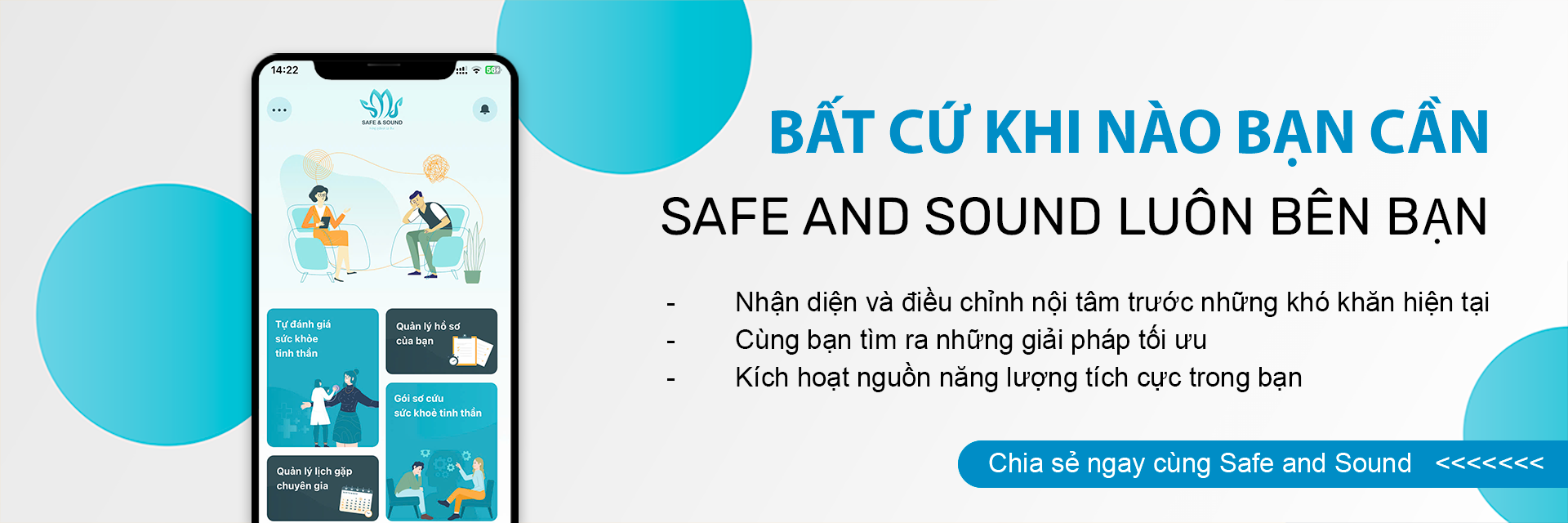Withdrawn and Quiet Children: Causes and Ways to Support Them | Safe and Sound
Children who are withdrawn and have little communication can be an early warning sign of many psychological problems such as autism, anxiety disorders, and depression. If prolonged, this behavior can negatively affect the child's ability to learn, adapt, develop emotionally, and build social relationships. So what leads to the tendency to withdraw in children and what should parents do to support their children in a timely manner?
Nguyen Thi Mai Anh | Bachelor of Psychology - Applied mental health care Safe and Sound
Institute of Medical Technology Applications
1. Why is withdrawn behavior and lack of communication in children a noteworthy sign?
According to psychologists, it is necessary to distinguish between shyness and the tendency to withdraw and communicate less. Shy children often lack confidence, hesitate when communicating, feel uncomfortable in crowded environments but still want to connect. Meanwhile, the child's withdrawal behavior is a state of systematic, prolonged avoidance of communication and is accompanied by feelings of excessive anxiety and low self-esteem.
Children with a tendency to withdraw often have difficulty establishing and maintaining relationships, leading to feelings of loneliness, sadness, and low self-esteem. Self-isolation reduces the child's ability to adapt, negatively affecting the child's long-term emotional, academic, and psychological development. In many cases, a child's withdrawal reaction is an early manifestation of more serious problems such as anxiety disorders or depression. Therefore, parents need to observe carefully and seek psychological help if the withdrawal behavior becomes persistent or worsens over time.

Children who tend to be withdrawn and have little communication face many difficulties.
2. What makes children withdrawn and less communicative?
2.1. Innate introversion
Some children seem to be quiet and have difficulty starting conversations from an early age, which sometimes comes from innate personality traits rather than a manifestation of disorders. According to psychologists, temperament is an innate characteristic of each child, affecting the way they react to the world around them. Children with an introverted personality are often cautious and need time to adapt to new environments or strangers. They tend to observe before participating in common activities and are not comfortable speaking in front of a crowd.
However, it is worth noting that if children are in an unsupportive environment or are constantly forced to open up, they may develop feelings of anxiety and gradually become negative in their avoidance of communication. Therefore, when parents notice their children withdrawing, they need to consider the innate factors, carefully observing whether this is a natural part of their personality or has become a long-term avoidance behavior. This difference will help parents respond appropriately, supporting their children to gradually develop the ability to connect in a gentler and more positive way.
2.2. Influence from living environment
- Being scolded, compared, and lacking encouragement : Children who are often scolded, compared with others, and lack encouragement and recognition from their parents are likely to develop feelings of inferiority, anxiety, and gradually avoid social interaction. Growing up in an environment that does not encourage expressing emotions or opinions will cause children to develop a mentality of silence for safety.
- Families with little interaction and little time for children : Families with a lack of common activities and not spending quality time with their children also make children feel lonely and disconnected, leading to a tendency to withdraw and reduce communication. Children living in stressful, quiet, and conflict-prone environments also have difficulty developing social skills.
2.3. Having had negative experiences
- Being bullied, criticized, or mentally abused : Many cases of children being withdrawn and quiet stem from negative experiences in the past. Situations such as being bullied at school, being criticized for their appearance, or even being mentally abused by relatives and friends can leave a deep psychological impact, causing children to gradually withdraw and avoid communication to protect themselves.
- Experiencing events such as divorce, loss of a loved one: Events such as parental divorce, loss of a loved one, or sudden changes in living environment can have a profound impact on a child's psychology. While adults can share and find ways to cope with the pain, many children choose to withdraw, speak little, and avoid communication.

Negative experiences are the cause of children's withdrawal.
2.4. Psychological disorders
Some children are withdrawn and have little communication not only due to the environment or personality but can also be related to psychological problems such as depression, anxiety, autism. These signs are not easy to recognize early if only looking at the surface. Therefore, if you see your child being withdrawn for a long time, having difficulty integrating, or having difficulty in social interaction, parents should proactively seek out a psychologist or specialist for timely diagnosis and intervention.
See more: Recognizing signs and behaviors of autistic children and the role of psychiatrists
3. What should parents do when their children show signs of withdrawal and lack of communication?
3.1. Change the way you communicate with children
When children are withdrawn and have little communication, the first thing parents need to do is change the way they talk to their children to suit their emotions. Many parents unintentionally create pressure by constantly asking questions and demanding that children immediately integrate. This pressure often makes children more anxious and avoidant.
Instead, parents should listen calmly, without interrupting or judging. If the child is quiet, do not worry, sometimes silence is the child's way of regulating emotions. The important thing is to let the child know that the parents are always there and ready to listen.
Children will feel more confident if they are recognized at the right time. Simple, gentle compliments can be very effective in encouraging positive behavior. For example, when your child takes the initiative to say hello to an acquaintance, you can praise: “Good job!”. Timely encouragement helps children believe that they are doing well and want to continue to open up to communicate more.
3.2. Spend time with your children every day
Spending quality time every day helps to bond emotionally and allows children to express themselves freely. Parents should spend about 15-30 minutes each day doing a simple activity with their children such as reading, playing with puzzles, drawing or going for a walk. In addition, you can take advantage of small moments during the day such as at mealtimes or before bedtime to talk to your children.
During the conversation, put your phone down and give your full attention to the conversation. Just 10–15 minutes of focused attention is enough to make your child feel connected. Parents can start with simple questions like: “When did you feel happiest today?”, “Is there anything that makes you unhappy?” to naturally elicit this.
3.3. Help children learn to interact and communicate without pressure
One of the effective ways to help children become more confident in communicating is to create opportunities for them to talk more, but at the same time, ensure that they do not create pressure. Parents can start from familiar, close situations. For example, instead of going to a crowded place, try inviting a few of your child's friends to your home so that your child can communicate in the safest, most comfortable environment.
In addition, parents should also teach children basic communication skills such as greeting, saying thank you, and apologizing. Integrate these skills through role-playing games, storytelling, or modeling for children to observe and learn effectively. In addition, parents can let their children participate in skill classes with a friendly, less competitive environment, and teachers who understand children's psychology. These positive experiences will help children gradually feel that communication is pleasant, no longer making them feel anxious or stressed.
3.4. Seek professional help if necessary
If the child's withdrawal and reticence persists and shows signs of becoming more serious, parents need to quickly seek support from experts. Especially when the child begins to show signs of psychological disorders such as complete isolation, refusal to communicate even with relatives, and inability to perform daily activities, including going to school or living normally due to excessive stress. Early professional support not only helps children overcome psychological difficulties but also prevents more serious problems in the future such as depression or anxiety disorders.
Safe and Sound Clinic - Family health and psychological support
With a team of experienced doctors and specialists, Safe and Sound Clinic is a pioneer in comprehensive health care with health care services from medicine to psychology.
“Early prevention - Timely support - Long-term companionship”.
.png)
If you have any doubts or experience any physical or mental health problems, please contact HOTLINE 0964 778 911 (Phone/Zalo, 24/7) for answers and support as soon as possible!
HOW TO MAKE AN APPOINTMENT for online or in-person consultation with an expert
- At SnS Clinic - IMT Institute
- Or download and schedule a consultation on the Safe and Sound app to manage and track your schedule anytime, anywhere.
Safe and Sound (SnS) - Institute of Applied Medical Technology (IMT)
See also:



